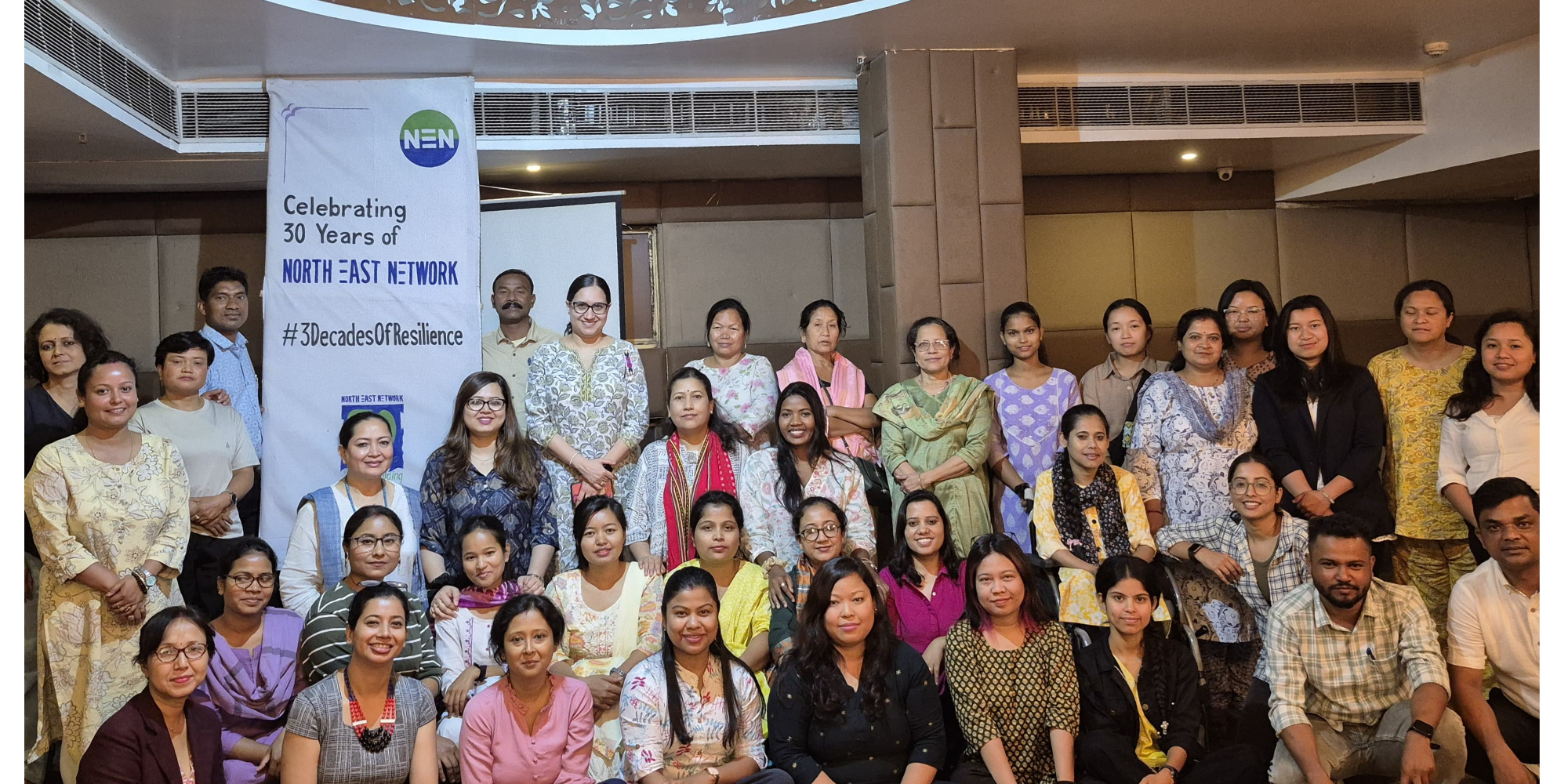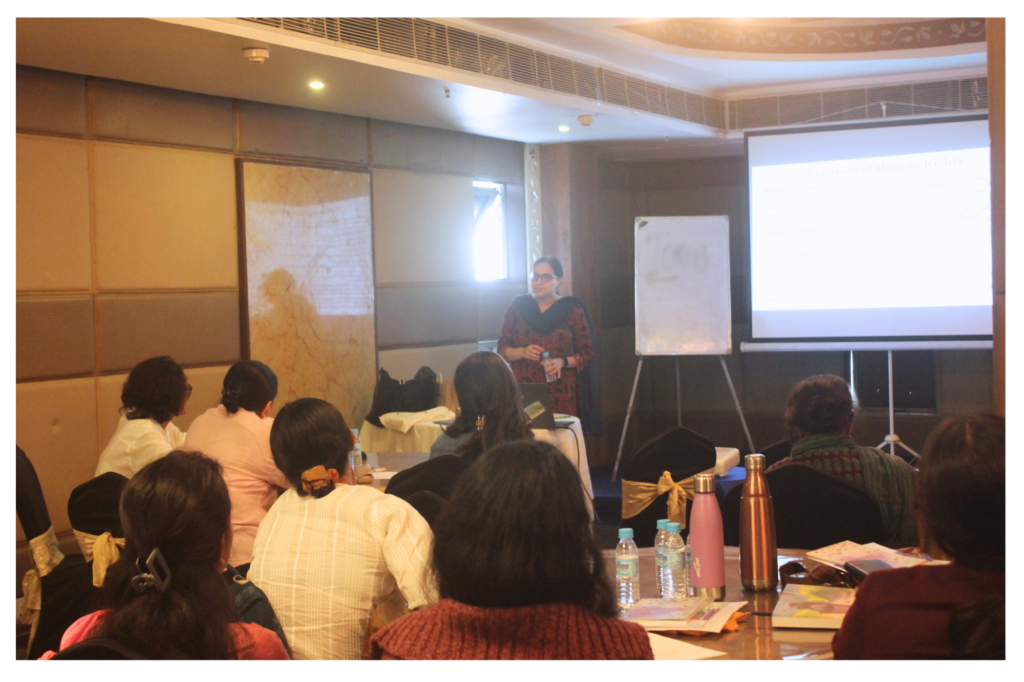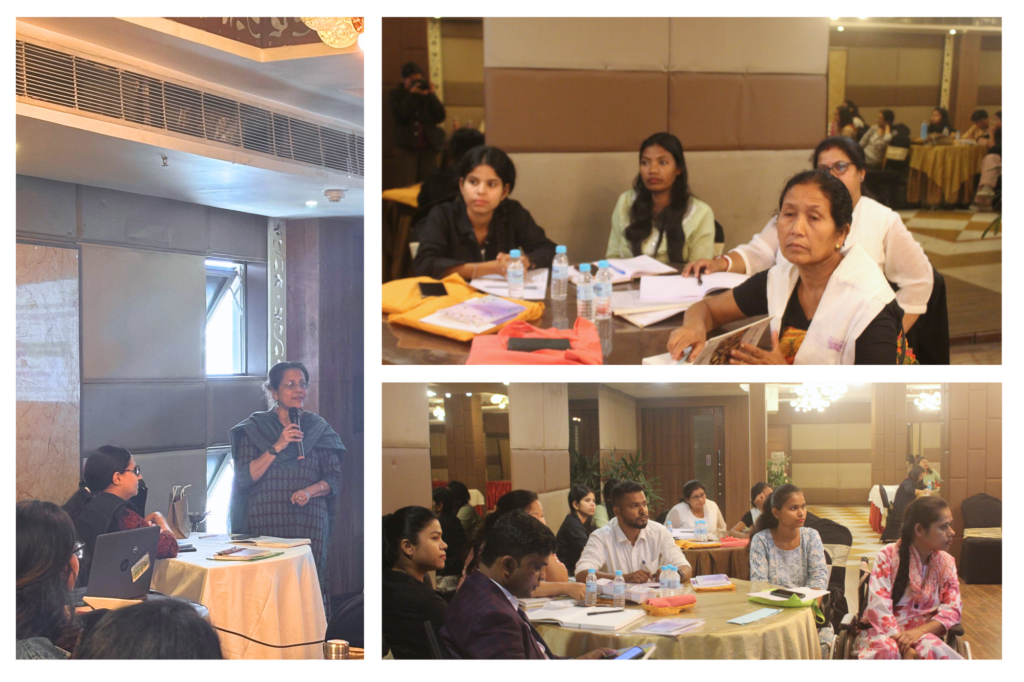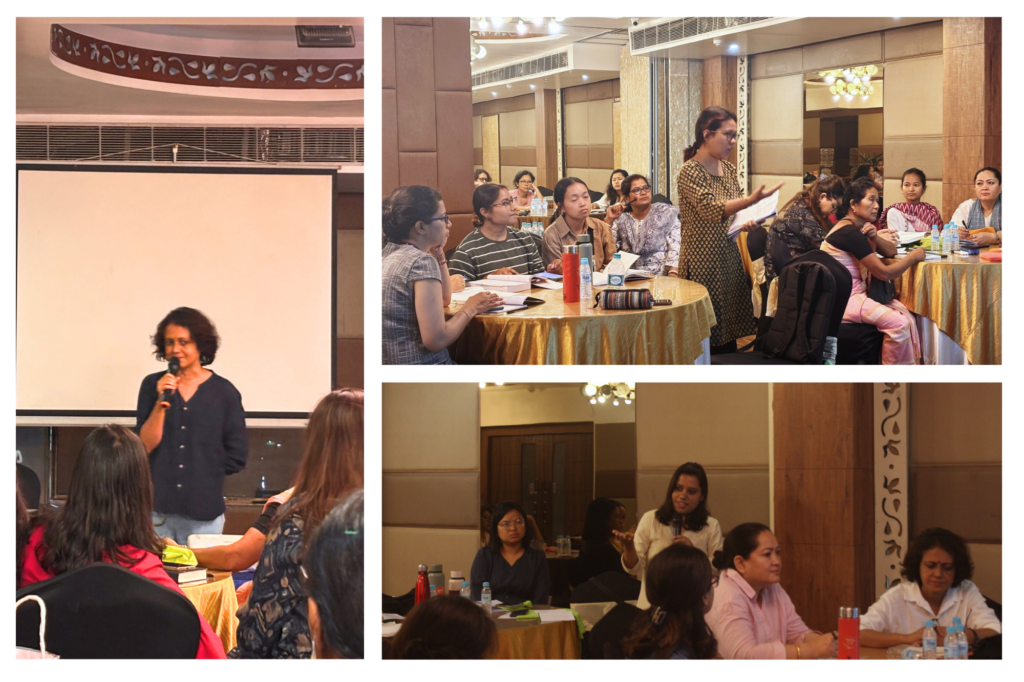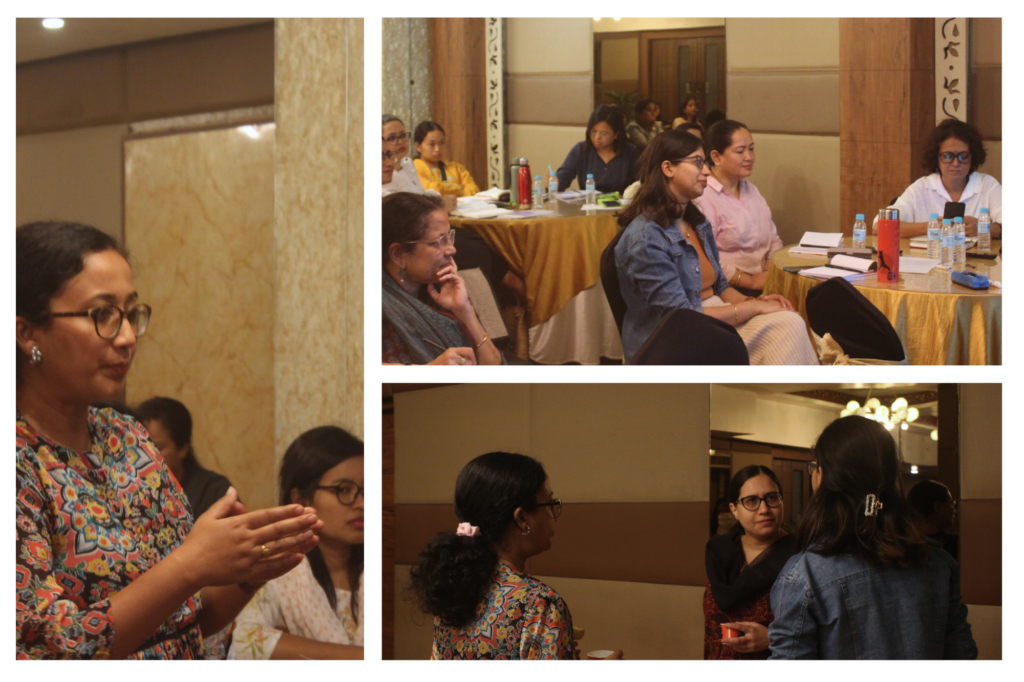In July 2024, India marked a major shift in its criminal justice system by replacing the Indian Penal Code (IPC), the Code of Criminal Procedure (CrPC), and the Indian Evidence Act with three new legislations: the Bharatiya Nyaya Sanhita (BNS), the Bharatiya Nagarik Suraksha Sanhita (BNSS), and the Bharatiya Sakshya Adhiniyam (BSA). These changes have far-reaching implications for survivors of gender-based violence, legal practitioners, and civil society organisations across the country.
To explore how these laws impact women’s rights and access to justice, NEN Assam organised a two-day workshop in Guwahati on 26th and 27th March 2025. The workshop brought together a diverse group of participants from One Stop Centres, women’s rights groups, NGOs, lawyers and legal-aid counsels from Assam, Meghalaya, and Nagaland.
The sessions were facilitated by Persis Sidhva, Advocate, Bombay High Court and Director, RATI Foundation for Social Change. The workshop unpacked the key changes in the new criminal laws, especially with respect to definitions and punishments concerning crimes against women and children. It also examined changes in procedures relating to FIR registration, medical examination, investigation, prosecution, evidence, and victim compensation. Discussions delved into how these shifts may impact women’s access to justice and whether these legal reforms serve to strengthen or weaken the protections available to them.
Through group activities using case studies, participants explored the practical implications of these legal changes. Presentations and open discussions fostered critical dialogue throughout the workshop. This workshop aimed to ensure that participants are equipped with the tools and knowledge to ensure justice for women, thereby strengthening support services for survivors of gender-based violence.

